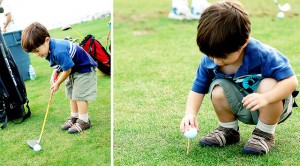 Divorce is a challenging life experience for children, and parents worry what the impact will be on their children’s lives. Based on my work with families of divorce, I have three specific suggestions for how parents can empathetically support their children during this difficult and often painful transition:
1. Never put your children in the middle of parental conflict.
This cannot be overstated: exposure to parental conflict is toxic for children. Heated arguments around children, even if parents believe their children can’t overhear, negatively charge the environment in the home, and kids will feel it. Critical or disrespectful words about a parent said by the other parent in the hearing range of their children make kids confused, sad and often angry. I have heard many stories from tearful children about trying to get parents to stop arguing and belittling each other. You would never feed your children poisonous food; do not make them absorb poisonous words.
2. Remember that children deserve the best safe parenting they can get from both parents.
Be civil, treat each other with courtesy and remind your children that both parents love them. Despite your hurt, anger or betrayal as a spouse, remember that your child’s relationship with and feelings about your soon-to-be-ex are separate from yours. Resist the urge to try to get your child on your side, or to alienate your child from the other parent. Of course real safety concerns must be addressed and may result in protective measures like supervised parental access. But it is not fair to try to negatively manipulate your child’s feelings about the other parent just because you are angry.
3. Listen to your children and stay attuned to their needs.
The emotional and time demands of a divorce can understandably absorb parents’ time and attention at the exact time their children may need extra reassurance. Because regular routines are usually reassuring to children, try to designate time to spend with your children doing normal family activities. Let them know whatever feelings they have about the divorce are okay, and you will always love and support them. Check in with them to see how they’re doing, but read their cues if they tell you you’re asking too often.
Divorce is a challenging life experience for children, and parents worry what the impact will be on their children’s lives. Based on my work with families of divorce, I have three specific suggestions for how parents can empathetically support their children during this difficult and often painful transition:
1. Never put your children in the middle of parental conflict.
This cannot be overstated: exposure to parental conflict is toxic for children. Heated arguments around children, even if parents believe their children can’t overhear, negatively charge the environment in the home, and kids will feel it. Critical or disrespectful words about a parent said by the other parent in the hearing range of their children make kids confused, sad and often angry. I have heard many stories from tearful children about trying to get parents to stop arguing and belittling each other. You would never feed your children poisonous food; do not make them absorb poisonous words.
2. Remember that children deserve the best safe parenting they can get from both parents.
Be civil, treat each other with courtesy and remind your children that both parents love them. Despite your hurt, anger or betrayal as a spouse, remember that your child’s relationship with and feelings about your soon-to-be-ex are separate from yours. Resist the urge to try to get your child on your side, or to alienate your child from the other parent. Of course real safety concerns must be addressed and may result in protective measures like supervised parental access. But it is not fair to try to negatively manipulate your child’s feelings about the other parent just because you are angry.
3. Listen to your children and stay attuned to their needs.
The emotional and time demands of a divorce can understandably absorb parents’ time and attention at the exact time their children may need extra reassurance. Because regular routines are usually reassuring to children, try to designate time to spend with your children doing normal family activities. Let them know whatever feelings they have about the divorce are okay, and you will always love and support them. Check in with them to see how they’re doing, but read their cues if they tell you you’re asking too often.  Divorce is a challenging life experience for children, and parents worry what the impact will be on their children’s lives. Based on my work with families of divorce, I have three specific suggestions for how parents can empathetically support their children during this difficult and often painful transition:
1. Never put your children in the middle of parental conflict.
This cannot be overstated: exposure to parental conflict is toxic for children. Heated arguments around children, even if parents believe their children can’t overhear, negatively charge the environment in the home, and kids will feel it. Critical or disrespectful words about a parent said by the other parent in the hearing range of their children make kids confused, sad and often angry. I have heard many stories from tearful children about trying to get parents to stop arguing and belittling each other. You would never feed your children poisonous food; do not make them absorb poisonous words.
2. Remember that children deserve the best safe parenting they can get from both parents.
Be civil, treat each other with courtesy and remind your children that both parents love them. Despite your hurt, anger or betrayal as a spouse, remember that your child’s relationship with and feelings about your soon-to-be-ex are separate from yours. Resist the urge to try to get your child on your side, or to alienate your child from the other parent. Of course real safety concerns must be addressed and may result in protective measures like supervised parental access. But it is not fair to try to negatively manipulate your child’s feelings about the other parent just because you are angry.
3. Listen to your children and stay attuned to their needs.
The emotional and time demands of a divorce can understandably absorb parents’ time and attention at the exact time their children may need extra reassurance. Because regular routines are usually reassuring to children, try to designate time to spend with your children doing normal family activities. Let them know whatever feelings they have about the divorce are okay, and you will always love and support them. Check in with them to see how they’re doing, but read their cues if they tell you you’re asking too often.
Divorce is a challenging life experience for children, and parents worry what the impact will be on their children’s lives. Based on my work with families of divorce, I have three specific suggestions for how parents can empathetically support their children during this difficult and often painful transition:
1. Never put your children in the middle of parental conflict.
This cannot be overstated: exposure to parental conflict is toxic for children. Heated arguments around children, even if parents believe their children can’t overhear, negatively charge the environment in the home, and kids will feel it. Critical or disrespectful words about a parent said by the other parent in the hearing range of their children make kids confused, sad and often angry. I have heard many stories from tearful children about trying to get parents to stop arguing and belittling each other. You would never feed your children poisonous food; do not make them absorb poisonous words.
2. Remember that children deserve the best safe parenting they can get from both parents.
Be civil, treat each other with courtesy and remind your children that both parents love them. Despite your hurt, anger or betrayal as a spouse, remember that your child’s relationship with and feelings about your soon-to-be-ex are separate from yours. Resist the urge to try to get your child on your side, or to alienate your child from the other parent. Of course real safety concerns must be addressed and may result in protective measures like supervised parental access. But it is not fair to try to negatively manipulate your child’s feelings about the other parent just because you are angry.
3. Listen to your children and stay attuned to their needs.
The emotional and time demands of a divorce can understandably absorb parents’ time and attention at the exact time their children may need extra reassurance. Because regular routines are usually reassuring to children, try to designate time to spend with your children doing normal family activities. Let them know whatever feelings they have about the divorce are okay, and you will always love and support them. Check in with them to see how they’re doing, but read their cues if they tell you you’re asking too often. 

